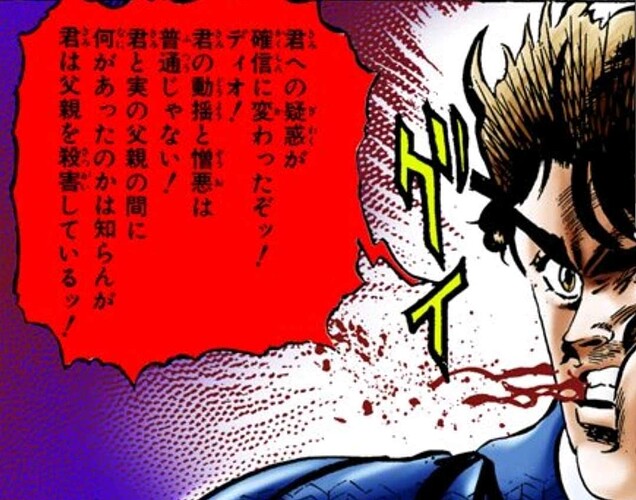In the third column from the left, JoJo says “君と実の父親の間に何があったのかは知らん”
Why is the question here marked with のかは instead of just か?
I think this does a fairly good job of explaining the difference here.
The question itself is the object of the verb (or subject if you think of it as “x is unknown” rather than “I don’t know x” since 知らない is technically an adjective?), so it needs the は to mark it as what is 知らん. By my understanding, he could use either か or のか/んか since it’s colloquial and the meaning wouldn’t change, but without the は, the sentence wouldn’t be complete. It’s just how embedded questions are structured in Japanese.
In Japanese, they keep the question structured the same way as if it weren’t embedded:
[Did something happen between you and your real father?] is unknown (to me), but…
But in English, we restructure it so that it isn’t a question anymore:
I don’t know [if something happened between you and your real father], but…
Update: Ah, nope, it turns out that this は can be left out colloquially. I just came across the sentence “もうどうやって一人でいられたかわからない.” When I was trying to think if it could be left out earlier, it didn’t sound right, but I don’t know if that’s my inexperience and it can be left out there or if there’s something about that sentence in particular that means it needs it. But the “のかは” is the “correct” way and is how it’s used in writing, but in speech (and dialogue), it can just be “か,” and there’s no real difference in meaning, just maybe politeness.

